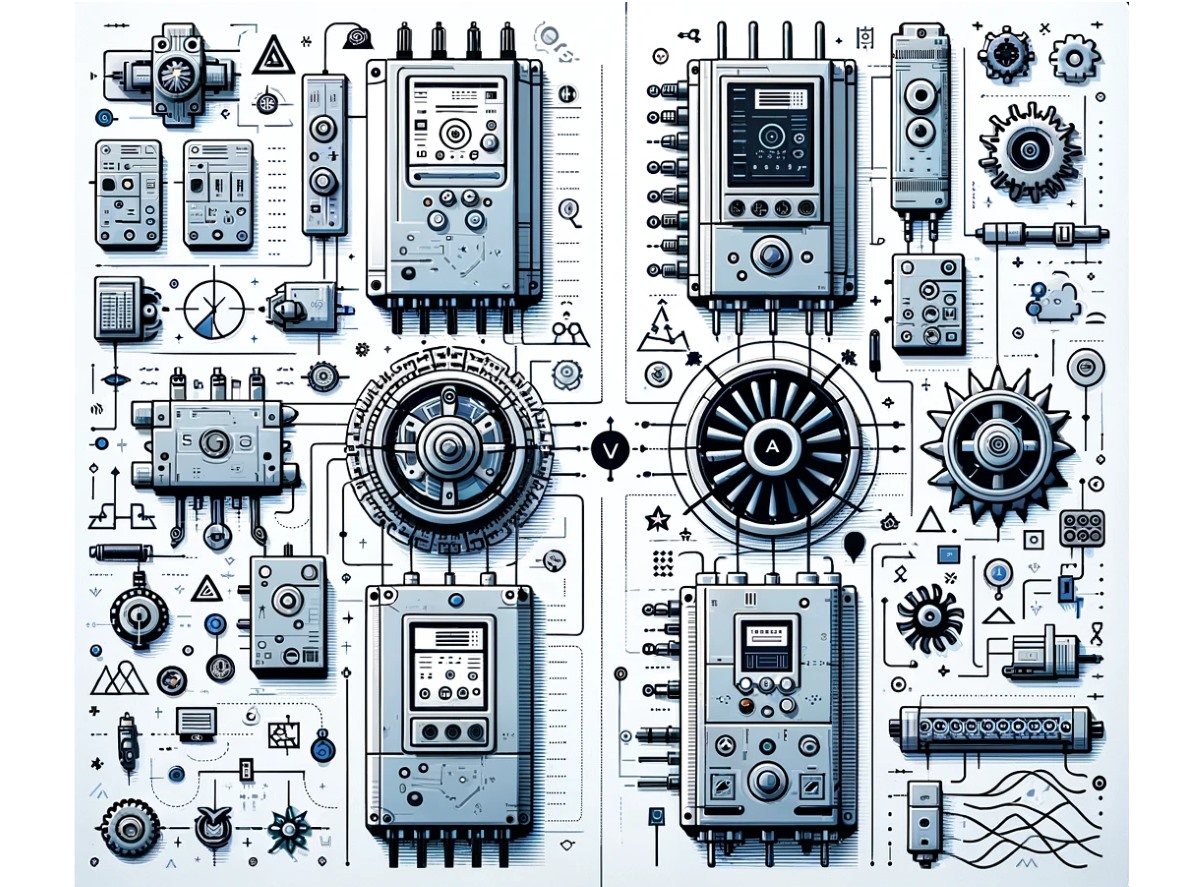DC vs AC drives?

Hello DC Control friends,
DC (Direct Current) drives and AC (Alternating Current) drives have several key differences, each with its own set of advantages and disadvantages. Here are some of the primary distinctions:
Power Source and Motor Type
DC Drives: Work with DC motors, which run on direct current.
AC Drives: Work with AC motors, which run on alternating current.
Complexity and Cost
DC Drives: Generally simpler but require regular maintenance like brush replacement.
AC Drives: More complex circuitry, but usually less maintenance.
Efficiency
DC Drives: Generally less efficient due to losses in the brushes and commutator.
AC Drives: Typically more efficient, especially at partial load conditions.
Speed and Torque Control
DC Drives: Easier and more precise speed and torque control.
AC Drives: Speed control achievable but may be less precise in some applications.
Regeneration
DC Drives: Easier to set up for energy regeneration.
AC Drives: Capable of regeneration but may require additional hardware.
Size and Weight
DC Drives: Typically smaller and lighter for the same power ratings.
AC Drives: Generally larger and may weigh more.
Application
DC Drives: Often used in applications requiring high starting torque and precise speed control, like elevators and conveyors.
AC Drives: Common in pumps, fans, and general-purpose applications.
Longevity and Reliability
DC Drives: Brushes and commutator wear out, requiring replacement.
AC Drives: Generally more durable and longer-lasting with fewer moving parts to wear out.
Each type of drive is suitable for specific applications, and the choice between the two will depend on your particular needs.
While the use of DC drives in industry (at least at high power levels) has diminished, they are still widely found. Below, we have attempted to answer the most frequently asked questions about DC drives from our visitors.
- What are the operating principles of DC drives?
- What are the different types of DC drives?
- What are the key differences between DC drives and AC drives?
- What are the typical applications for DC drives?
- How energy-efficient are DC drives?
- What are the control methods used in DC drives?
- What type of DC drive is most suitable for a specific DC motor?
- What are the most common problems and solutions associated with DC drives?
- What are the power ranges used in DC drives?
- What additional components are used alongside DC drives?
- What are the advantages and disadvantages of DC drives?
- How do I choose a DC drive?
- How scalable are DC drives?
- Is integration between a DC drive and a PLC possible?
- What are the lifespan and maintenance requirements for DC drives?
- What safety features are included in DC drives?
- How is the dynamic response in DC drives?
- What feedback options are available in DC drives?
- What types of protection mechanisms are used in DC drives?
- What types of sensors can be used with DC drives?
These questions generally also encompass the types of queries that many people may have about DC drives. Each user or student will have their own unique question or interpretation depending on the specific situation or application. The answers provided are not binding and are not definitive. "You are welcome to share the article above as long as you cite it as the source." 05.2019
Your shopping cart is empty!
